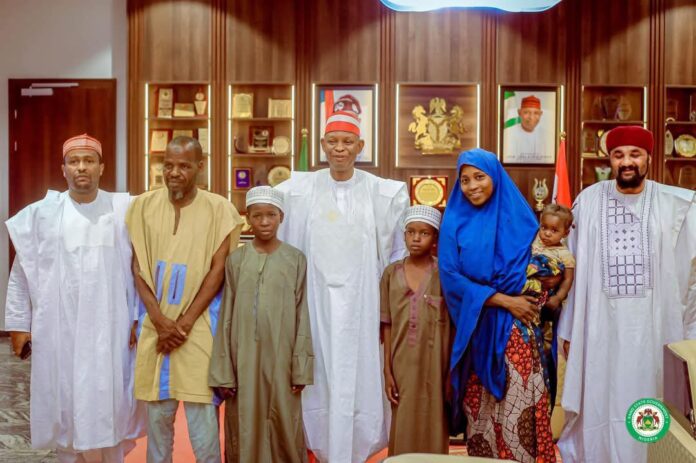
By Abdussamad Ahmad Yusuf
Governor Abba Kabir Yusuf of Kano State encountered street-connected children while inspecting ongoing road beautification works in the state capital. Kano is notorious for street-connected children, particularly Almajirai, with their numbers estimated at about 606,259 in the state, contributing to the northern states’ approximately 10 million out-of-school children. These numbers are according to the Development Research and Projects Center (dRPC) and UNICEF, respectively. However, it is essential to acknowledge the data and statistical gaps in the exact estimated number of Almajiri, as neither Nigeria’s apex statistical agency, the National Bureau of Statistics (NBS), nor the National Almajiri and Out-of-School Children Commission has accurate figures.
The Governor found the children sleeping on the streets at night and ordered their immediate transfer to the Kano State Government House for food and shelter. The following day, their parents were traced, conveyed to the Government House, and provided with foodstuff and tokens for their upkeep. While the singular act of showing interest in the children is commendable, I feel it may have unintended consequences.
Action Expected
The discovery of these street-connected children represents a tiny fraction of the broader educational crisis in the state, with far-reaching implications for the social, economic, and security fabric of Kano. It is possible that these parents, out of the millions sending away their responsibilities to the streets, might feel emboldened and empowered to release more of their wards to the streets, expecting similar gratification from the state chief executive.
I expect a high level of policy shifts and actions to follow, given the lingering nature of this issue. Nevertheless, I remain optimistic that this could be a turning point where robust policy conversations at the state government level will lead to a policy shift and interest in inclusive and compulsory universal education for all school-age children. This should leverage the recently signed Kano State Social Protection Agency, in collaboration with critical education agencies like the Kano Educational Resources Department, State Universal Education Board, and Kano Bureau of Statistics, to map out all street-connected children, Almajiri, and out-of-school children to establish a comprehensive database.
For a makeshift intervention, the Hisba safety net programme should collaborate with the State Universal Education Board (SUBEB) to design and implement literacy, numeracy, vocational skill, and life skill programs to completely rehabilitate the children and return them to their parents while monitoring their progress.
Re-initiating conversations and hastening the implementation of the Islamic Family Reform Law of Kano Emirate, in collaboration with other traditional and religious institutions within the state, the Kano State House of Assembly, and the Council of Ulema, will reposition family governance and reimagine community roles in tarbiyya.
It is essential to commit adequate political will to deal with the Almajiri conundrum as an issue-based concern, disregarding the controversies and trivialities that have surrounded it for the last three decades.
Abdussamad Ahmad wrote in from Kano, Nigeria.
The opinion expressed in this article are that of the author and do not necessary represent the editorial policy of SkyDaily newspaper.





































